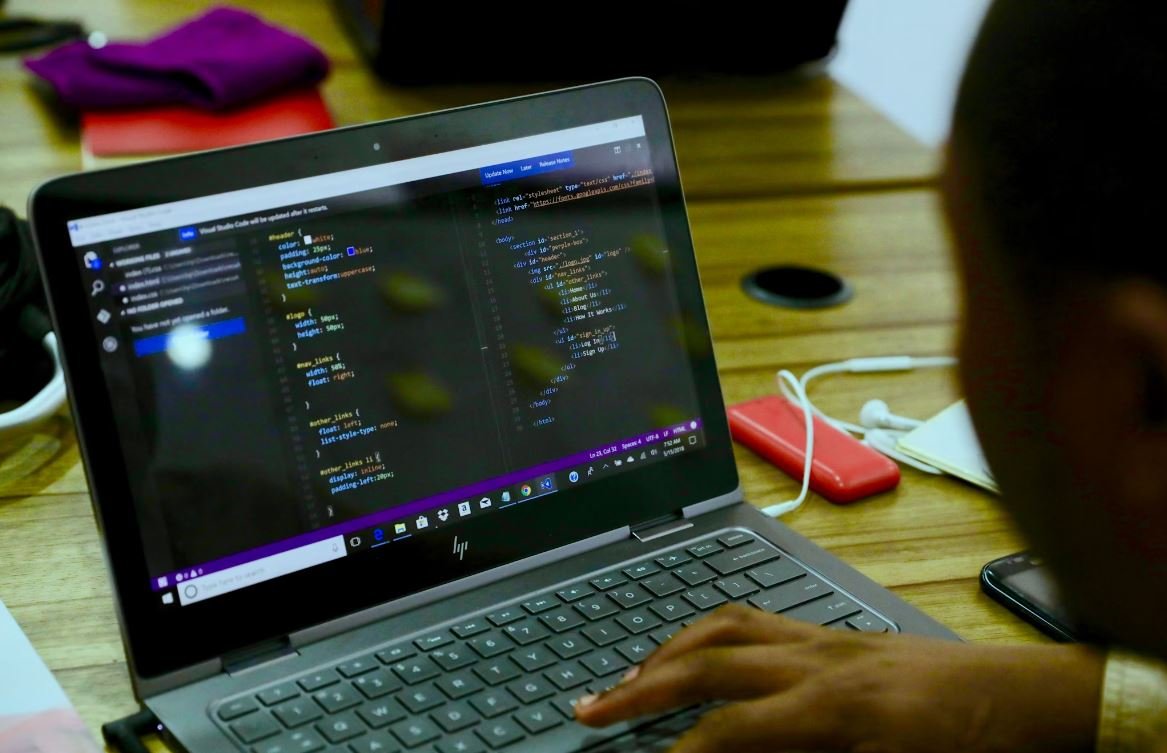Video Producer Vs Editor
When it comes to creating high-quality videos, it takes a team of professionals to ensure a successful outcome. Two key roles in the video production process are the video producer and the video editor. While both these roles are essential and can sometimes overlap, they have distinct responsibilities that contribute to the overall production.
Key Takeaways:
- Video producers oversee the entire video production process, from conceptualization to delivery.
- Video editors focus on post-production tasks, such as assembling footage, adding effects, and refining the final product.
- The video producer is responsible for managing budgets, schedules, and coordinating resources, while the video editor ensures the visual and narrative coherence of the final video.
Video producers are involved in the pre-production, production, and post-production stages of video production. They are responsible for overseeing the entire process, from conceptualization to delivery. During pre-production, they work closely with clients or project stakeholders to understand the goals and messaging of the video. They create budgets, develop timelines, and hire the necessary crew. In the production phase, video producers handle logistics, such as securing locations, managing talent, and organizing equipment. In post-production, they collaborate with video editors and other creative professionals to ensure the final video aligns with the initial vision.
Video editors are primarily involved in the post-production stage of video production. Their role is to assemble footage, add effects and transitions, refine audio, and create the final video. They work closely with the video producer or director to ensure the visual and narrative coherence of the video. Video editors use specialized software and tools to bring together all the elements of the video production process. They have a keen eye for detail and understand the principles of visual storytelling. Editors may also be involved in color correction, sound mixing, and other technical aspects to enhance the overall quality of the video.
*Video production requires collaboration between different professionals to create a cohesive and compelling final product.*
The Differences between a Video Producer and a Video Editor:
Responsibilities:
| Video Producer | Video Editor |
|---|---|
| Oversees the entire video production process | Focuses on post-production tasks |
| Manages budgets, schedules, and resources | Assembles footage, adds effects, and refines the final product |
| Collaborates with clients and stakeholders | Collaborates with video producer/director for visual and narrative coherence |
Skills:
- Video Producers: Project management, budgeting, communication, leadership
- Video Editors: Video editing software proficiency, storytelling, attention to detail
Workflow:
- Video Producer: Pre-production, production, post-production
- Video Editor: Post-production
In summary, video producers and video editors each play vital roles in the video production process. While video producers focus on managing the overall production and ensuring the project’s success, video editors bring the footage to life and refine it into a visually and narratively engaging final product. Both roles require specific skill sets and contribute to the collaborative effort required to produce high-quality videos.

Common Misconceptions
Video Producer
One common misconception people have about video producers is that their role is limited to filming videos. In reality, video producers are involved in the entire video production process, from conceptualization to post-production.
- Video producers are responsible for creating a creative vision and developing the script or storyboard.
- They manage the production team, which can include camera operators, sound technicians, and lighting specialists.
- Video producers also oversee logistics, such as location scouting, hiring actors, and securing necessary permits.
Editor
Another misconception is that video editors simply stitch together clips. While editing involves assembling footage, it goes beyond that to shape the narrative, pacing, and overall flow of the video.
- Editors work closely with the video producer or director to understand their vision and bring it to life in the editing process.
- They make crucial decisions about which shots to include, the timing of cuts, and the use of visual and sound effects.
- Video editors also fine-tune the color grading, audio levels, and overall quality of the final product.
Video Producer Vs Editor
A common misconception is that video producers and editors perform the same tasks. While there may be some overlap in their roles, they are distinct positions with different responsibilities.
- Video producers focus on the pre-production and production stages, working on the project from the initial concept to the end of filming.
- On the other hand, video editors specialize in post-production and work primarily with the footage that has already been filmed.
- Both roles require creativity and attention to detail, but they involve different skill sets and areas of expertise.
Collaboration and Communication
One misconception is that video producers and editors work independently without much collaboration. In reality, effective communication and collaboration between these two roles are essential for a successful video production.
- Video producers and editors need to be on the same page in terms of the project’s vision, goals, and desired outcome.
- They should have ongoing conversations to discuss changes, feedback, and any adjustments that may be necessary during the editing process.
- The collaboration between video producers and editors ensures that the final video aligns with the original vision while taking advantage of the editor’s creative input.
Importance of Both Roles
An erroneous belief is that one role is more important than the other. In reality, both video producers and editors play critical roles in the video production process, and their expertise is equally valuable.
- Video producers lay the foundation and guide the creative process, ensuring the project’s concept is executed effectively.
- Video editors take the raw footage and transform it into a polished and compelling final product.
- Without the collaboration and combined efforts of both roles, the overall quality and impact of the video may be compromised.

The Average Salary of a Video Producer and an Editor in the Film Industry
One of the key factors that individuals consider when choosing a career path is the potential earning and job stability. In the film industry, both video producers and editors play vital roles in creating visually engaging content. Here is a comparison of the average salaries for these two professions:
| Profession | Average Annual Salary |
|---|---|
| Video Producer | $70,000 |
| Editor | $60,000 |
This table showcases the average annual salaries of video producers and editors in the film industry. It is evident that video producers tend to earn a higher average salary compared to editors. However, it is important to note that the salary can vary based on factors such as experience, location, and project size.
The Top Skills Required for Video Production and Editing
Video production and editing are complex processes that require a combination of technical expertise and creative skills. Here are the top skills that both video producers and editors need to possess:
| Skill | Description |
|---|---|
| Video Production | Knowledge of camera operation, lighting techniques, and shot composition. |
| Editing Software | Proficiency in industry-standard software like Adobe Premiere Pro and Final Cut Pro. |
| Creative Vision | The ability to conceptualize and bring imaginative ideas to life through video. |
| Storytelling | Aptitude for narrative structure and understanding how to captivate audiences. |
| Attention to Detail | The capability to spot inconsistencies and ensure audiovisual continuity. |
| Time Management | Effectively managing project timelines and meeting strict deadlines. |
| Communication | Being able to convey ideas and collaborate effectively with the production team. |
| Technical Troubleshooting | Problem-solving skills to address technical issues that may arise during production or editing. |
| Organization | Keeping files, footage, and assets well-organized for efficient workflow. |
| Adaptability | The ability to quickly adjust and adapt to changes in project scope or client demands. |
This table highlights the essential skills necessary for video producers and editors to excel in their respective roles. These skills encompass technical proficiency, creative thinking, interpersonal abilities, and project management capabilities.
The Educational Paths for Becoming a Video Producer and an Editor
Education plays a critical role in building a foundation of knowledge and skills required for a career in video production and editing. The following table outlines the typical educational paths for these professions:
| Educational Path | Key Requirements |
|---|---|
| Video Producer |
|
| Editor |
|
This table showcases the main educational requirements for individuals aspiring to become video producers or editors. While formal education is valuable, hands-on experience and building a portfolio of work are crucial for establishing credibility and gaining industry recognition.
Job Outlook for Video Producers and Editors
Understanding the job outlook and employment opportunities is crucial for individuals considering a career in video production or editing. Let’s take a look at the forecast for these professions:
| Profession | Projected Job Growth (2019-2029) |
|---|---|
| Video Producer | 14% |
| Editor | 18% |
This table provides insights into the projected job growth for video producers and editors in the industry. It indicates that both professions are expected to experience positive growth in the upcoming years, highlighting the demand for skilled professionals in these roles.
Famous Video Producers and Editors in the Film Industry
Many video producers and editors have made significant contributions to the film industry, leaving an indelible mark on the art of visual storytelling. Here are some notable figures:
| Name | Notable Works |
|---|---|
| Steven Spielberg | Jurassic Park, E.T. the Extra-Terrestrial |
| Martin Scorsese | Goodfellas, The Departed |
| Quentin Tarantino | Pulp Fiction, Django Unchained |
| Christopher Nolan | Inception, The Dark Knight |
| Walter Murch | Apocalypse Now, The English Patient |
This table highlights renowned video producers and editors who have shaped the film industry with their exceptional talents. Their works have not only entertained audiences but have also set new standards within the field.
Video Producer and Editor Collaboration in Film Projects
Video producers and editors often work hand in hand, collaborating to bring a film project to life. The following table showcases the typical workflow and collaboration between these roles:
| Stage | Video Producer | Editor |
|---|---|---|
| Pre-production |
|
N/A |
| Production |
|
N/A |
| Post-production | N/A |
|
This table outlines the distinct roles of video producers and editors during different stages of a film project. While video producers focus on the pre-production and production stages, editors take the lead in post-production, working closely with the video producer to ensure the project’s creative vision is realized.
Key Differences Between Video Producers and Editors
Video producers and editors may have different responsibilities within the film industry. Here are some key distinctions between these two roles:
| Aspect | Video Producer | Editor |
|---|---|---|
| Visibility | Maintains a more visible role throughout the entire film production process. | Typically operates behind the scenes, with less public visibility. |
| Creative Involvement | Involved in developing the project’s creative concept and vision. | Implements the creative vision established by the video producer during editing. |
| Timeline | Responsible for ensuring the project stays on schedule during pre-production and production. | Focuses on meeting deadlines and ensuring the final product is delivered on time. |
| Leading Role | Takes on a leadership role, overseeing the entire film production process. | Plays a supporting role, focusing on the technical and artistic aspects of editing. |
This table highlights some of the key differences in terms of visibility, creative involvement, timeline management, and leading roles between video producers and editors. While their roles are distinct, both are integral to the successful execution of a film project.
Job Satisfaction and Work-Life Balance in Video Production and Editing
Pursuing a career in video production or editing can grant individuals a sense of satisfaction and work-life balance. Consider the following aspects:
| Aspect | Video Production | Editing |
|---|---|---|
| Job Satisfaction | Being involved in all aspects of the production process, from idea development to the final product. | Experiencing the transformation of raw footage into a visually cohesive and impactful narrative. |
| Work-Life Balance | Dependent on the project’s scale, involving longer work hours during production. | Opportunities for flexible work hours and remote editing, providing better work-life balance. |
This table examines job satisfaction and work-life balance factors for video producers and editors. While video producers are involved in the entire production process, editors can experience the gratification of piecing together footage and benefiting from greater flexibility in terms of hours and location.
Conclusion
Video producers and editors are key contributors to the film industry, working together to create compelling visual content for audiences worldwide. While video producers tend to earn a higher average salary, both professions require a range of technical, creative, and organizational skills.
Education, experience, and an understanding of the field’s dynamic landscape are crucial for success in these roles. With positive job growth projections and the ability to make significant contributions to the art of storytelling, video production, and editing offer promising career paths for individuals passionate about the filmmaking process.
Video Producer Vs Editor – Frequently Asked Questions
Question: What is the role of a video producer?
A video producer is responsible for managing the entire video production process. They oversee the project from conception to completion, which includes planning, budgeting, directing, and coordinating various aspects such as scriptwriting, casting, location scouting, and post-production. Their main goal is to ensure that the final video meets the client’s objectives and is delivered on time and within budget.
Question: What are the key responsibilities of a video editor?
A video editor’s main responsibility is to assemble raw footage and transform it into a cohesive and compelling video. They need to have a keen eye for detail, strong technical skills, and proficiency with video editing software. Video editors also collaborate closely with the director or producer to understand the intended message of the video and implement appropriate storytelling techniques and artistic choices through their editing process.
Question: How does the skill set differ between a video producer and a video editor?
While both roles are essential in video production, the skill sets required for each differ significantly. A video producer needs to have excellent project management, communication, and leadership skills. They should be able to oversee the entire production process, manage budgets, collaborate with clients, and coordinate with the production team. On the other hand, a video editor must possess strong technical skills in video editing software, have a good sense of timing and pacing, and be able to develop a visual narrative using raw footage.
Question: What is the typical workflow of a video producer?
The workflow of a video producer involves various stages, including pre-production, production, and post-production. In the pre-production stage, they work on planning, scriptwriting, budgeting, and casting. During production, the producer oversees the actual filming process, ensuring everything is on track and meeting the vision of the project. Lastly, in post-production, they collaborate with the video editor and other specialists to review the footage, complete the editing process, and finalize the delivery of the video.
Question: How does a video editor contribute to the overall video production process?
A video editor plays a crucial role in shaping the final video and achieving the desired outcome. They take the raw footage and carefully select and arrange the best shots, apply visual effects if needed, add music or sound effects, and fine-tune the overall video. Through their editing skills, they bring together all the elements to create a cohesive and captivating video that aligns with the client’s goals.
Question: How do video producers and video editors collaborate?
Video producers and video editors collaborate closely throughout the entire production process. The producer provides the editor with the project’s vision, objectives, and client requirements. They work together to establish the video’s narrative and style. The video editor receives the raw footage from the producer and starts the editing process, regularly communicating with them for feedback, revisions, and approvals. The producer and editor work hand-in-hand to ensure the final video meets the client’s expectations.
Question: Can a person be both a video producer and a video editor?
Yes, it is possible for someone to fulfill both the role of a video producer and a video editor, particularly in small-scale productions or self-produced projects. However, it requires a diverse skill set and the ability to effectively manage both the creative and logistical aspects of video production. In larger productions, these roles are typically handled by different individuals to ensure dedicated focus and specialization.
Question: What are some common challenges faced by video producers and video editors?
Both video producers and video editors face various challenges throughout the production process. Some common challenges include adhering to tight budgets and timelines, managing client expectations, resolving creative conflicts, obtaining necessary permissions or releases for content, ensuring that the video aligns with the brand or message, and maintaining effective communication among the production team. Adaptability, problem-solving, and strong collaboration skills are essential in overcoming these challenges.
Question: What education or training is typically necessary for video producers and video editors?
Education and training requirements can vary for video producers and video editors. A bachelor’s degree in film production, communication, or a related field can provide a solid foundation for both roles. Additionally, gaining practical experience through internships, workshops, or hands-on projects is highly beneficial. Video editors generally require technical proficiency in editing software and may benefit from specialized training or certification programs. Continuous learning and staying updated with the latest industry trends are also important for both roles.
Question: Can you provide examples of successful video producers or video editors?
There are numerous successful video producers and video editors in the industry. Some examples include Christopher Nolan, who is known for his exceptional video producing and directing skills, and Thelma Schoonmaker, a highly acclaimed video editor who has collaborated extensively with renowned filmmaker Martin Scorsese. These individuals have demonstrated their expertise through their notable works and have contributed significantly to the field of video production and editing.




